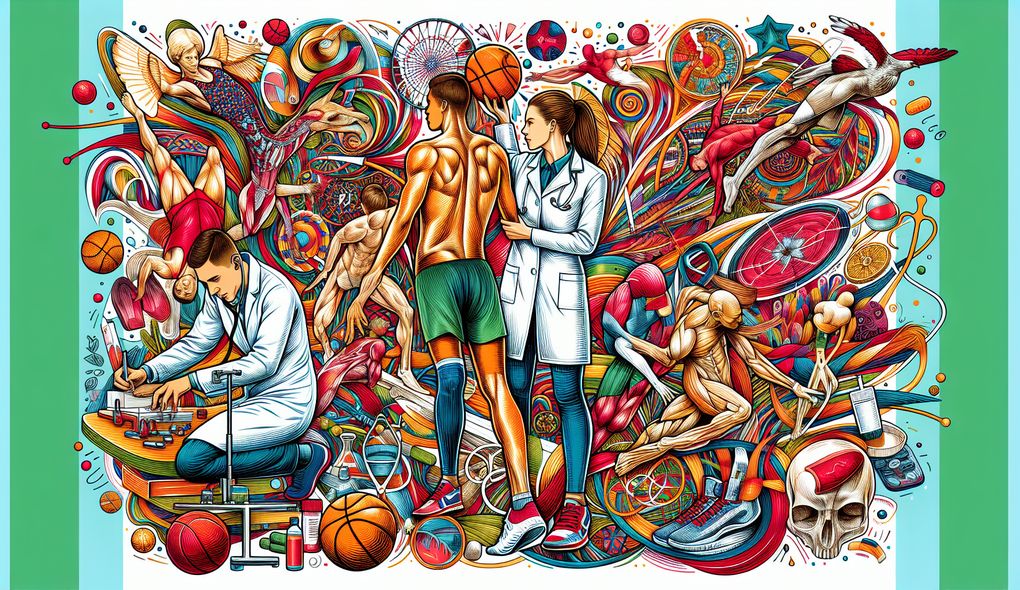How would you handle a situation where an athlete is resistant to following their prescribed training and rehabilitation program?
JUNIOR LEVEL

Sample answer to the question:
If an athlete is resistant to following their prescribed training and rehabilitation program, I would first try to understand the reasons behind their resistance. It could be due to a lack of motivation, fear of pain or injury, or simply a misunderstanding of the program's benefits. I would then have an open and honest conversation with the athlete, addressing their concerns and emphasizing the importance of sticking to the program. I would also provide clear explanations and evidence of how the program will help them improve performance and prevent further injuries. Furthermore, I would involve the athlete in the decision-making process by allowing them to provide input and make adjustments to the program within certain limits. By building a trusting relationship and showing empathy towards their feelings, I believe we can overcome their resistance and work together towards their recovery and success.
Here is a more solid answer:
When faced with a resistant athlete, I would approach the situation with a combination of analytical thinking and effective communication. Firstly, I would conduct a thorough assessment of the athlete's concerns, taking into account their physical and psychological factors. This would involve reviewing their medical history, evaluating their current condition, and understanding their personal goals and motivation. With this information, I would tailor the training and rehabilitation program to address their specific needs. To effectively communicate the importance of following the program, I would provide clear explanations, visual aids, and real-life examples of successful outcomes. Additionally, I would collaborate with other members of the sports medicine team, such as athletic trainers and physiotherapists, to gather different perspectives and expertise. This collaborative approach would ensure that the athlete receives comprehensive care and increases their trust in the program and the team. Lastly, I would stay updated on the latest sports medicine practices and technologies, allowing me to educate the athlete about innovative techniques that could enhance their recovery and performance.
Why is this a more solid answer?
The solid answer expands on the basic approach by providing specific actions and examples to demonstrate the candidate's problem-solving skills, communication skills, ability to work collaboratively, and knowledge of sports medicine practices. However, it could still benefit from more detailed examples and strategies.
An example of a exceptional answer:
In the scenario where an athlete resists following their prescribed training and rehabilitation program, my approach would involve a comprehensive and individualized strategy. Firstly, I would conduct a thorough assessment of the athlete's resistance by considering factors such as their personality, background, and previous experiences. This would allow me to gain a deeper understanding of the reasons behind their resistance. Based on this assessment, I would develop a customized plan to address their concerns and motivate them. For instance, if the athlete is motivated by competition, I would design a program that incorporates challenges and benchmarks to keep them engaged. Alternatively, if they have a fear of pain or injury, I would focus on education and gradual progression to build confidence. To enhance collaboration, I would involve the athlete in the decision-making process and encourage open communication. This would allow them to provide input, express concerns, and suggest modifications to the program. Additionally, I would utilize technology and data analytics to track their progress and provide tangible evidence of improvement. By regularly reviewing and adjusting the program based on their feedback and performance, I would ensure that the athlete remains motivated and committed. Furthermore, I would continuously update my knowledge of sports medicine practices and technologies through research and professional development opportunities. This would enable me to provide evidence-based recommendations and innovative solutions to overcome resistance and optimize the athlete's performance and well-being.
Why is this an exceptional answer?
The exceptional answer goes beyond the solid answer by incorporating a more comprehensive and individualized approach. It addresses the specific factors that may contribute to an athlete's resistance and provides detailed strategies to address each factor. The answer also highlights the candidate's ability to utilize technology and data analytics, as well as their commitment to continuous learning and professional development.
How to prepare for this question:
- Familiarize yourself with the latest research and best practices in sports medicine, including techniques for motivating athletes and overcoming resistance.
- Practice active listening and empathy to better understand the concerns and motivations of athletes.
- Develop your communication skills by practicing clear and concise explanations of training and rehabilitation programs.
- Learn about different personality types and motivational factors to tailor your approach to each athlete's needs.
- Stay up to date with emerging technologies and data analytics tools that can support athlete assessment and progress tracking.
What are interviewers evaluating with this question?
- Problem-solving skills
- Communication skills
- Ability to work collaboratively
- Knowledge of sports medicine practices

